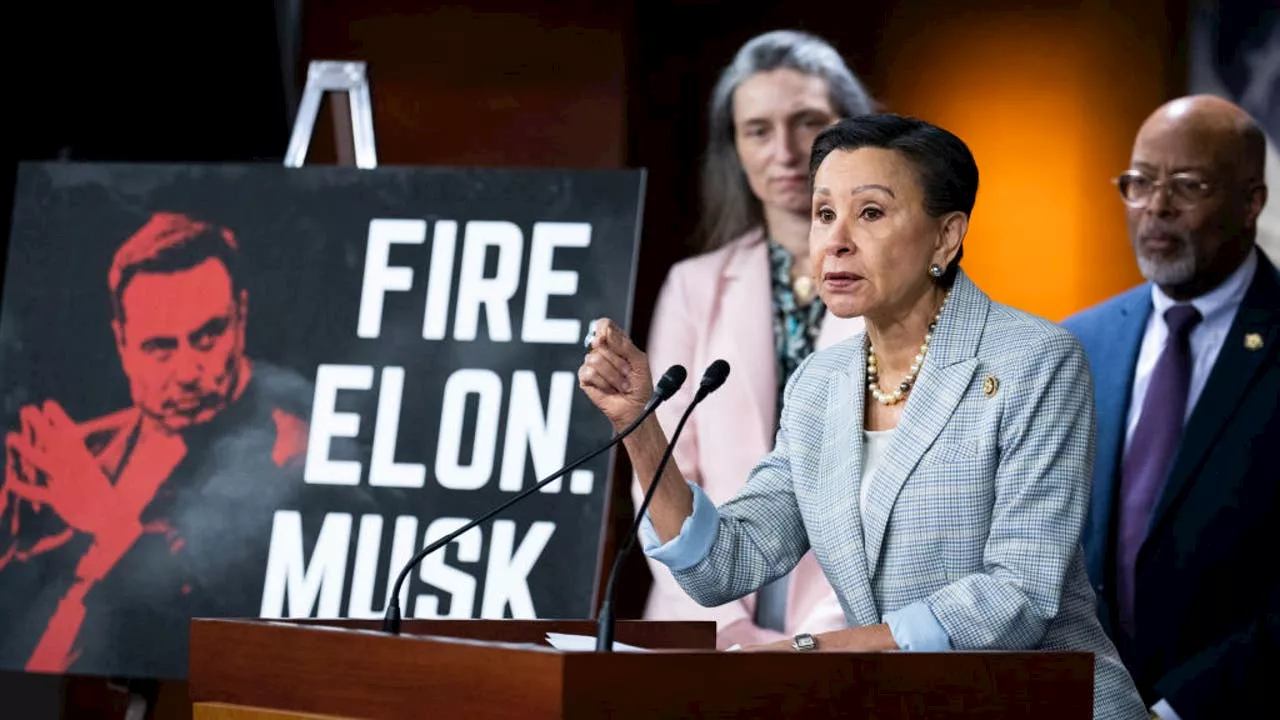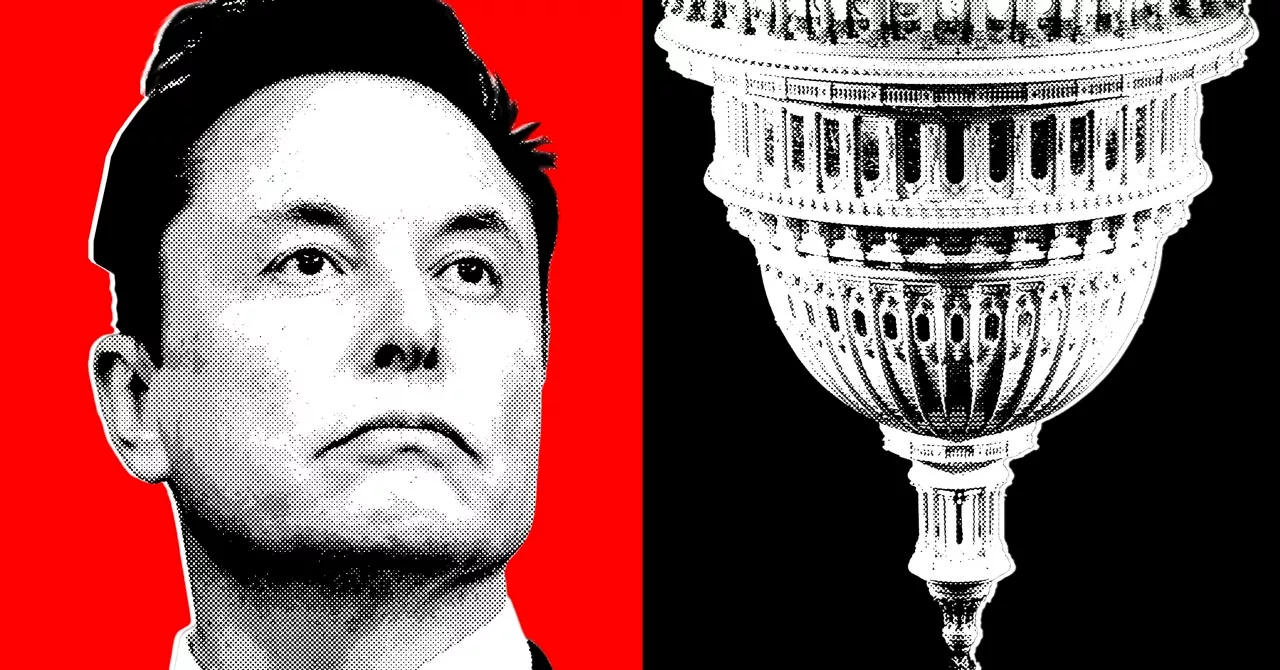This article warns against the dangers of treating the United States government like a Silicon Valley startup. It highlights Elon Musk's influence and actions, comparing them to his acquisition of Twitter. The author argues that Musk's team, driven by rapid iteration and a thirst for data, is dismantling safeguards and imposing a risky, untested approach on critical government functions.
It feels like no one should have to say this, and yet we are in a situation where it needs to be said, very loudly and clearly, before it’s too late to do anything about it: The United States is not a startup. If you run it like one, it will break.
The onslaught of news about Elon Musk’s takeover of the federal government’s core institutions is altogether too much—in volume, in magnitude, in the sheer chaotic absurdity of a 19-year-old who goes by “Big Balls” helping the world’s richest man consolidate power. There’s an easy way to process it, though. Donald Trump may be the president of the United States, but Musk has made himself its CEO. This is bad on its face. Musk was not elected to any office, has billions of dollars of government contracts, and has radicalized others and himself by elevating conspiratorial X accounts with handles like @redpillsigma420. His allies control the US government’s human resources and information technology departments, and he has deployed a strike force of eager former interns to poke and prod at the data and code bases that are effectively the gears of democracy. None of this should be happening. This is an edition of the WIRED Politics Lab newsletter. Read previous newsletters here. It is, though. And while this takeover is unprecedented for the government, it’s standard operating procedure for Musk. It maps almost too neatly to his acquisition of Twitter in 2022: Get rid of most of the workforce. Install loyalists. Rip up safeguards. Remake in your own image. This is the way of the startup. You’re scrappy, you’re unconventional, you’re iterating. This is the world that Musk’s lieutenants come from, and the one they are imposing on the Office of Personnel Management and the General Services Administration. What do they want? A lot. There’s AI, of course. They all want AI. They want it especially at the GSA, where a Tesla engineer runs a key government IT department and thinks AI coding agents are just what bureaucracy needs. Never mind that large language models can be effective but are inherently, definitionally unreliable, or that AI agents—essentially chatbots that can perform certain tasks for you—are especially unproven. Never mind that AI works not just by outputting information but by ingesting it, turning whatever enters its maw into training data for the next frontier model. Never mind that, wouldn’t you know it, Elon Musk happens to own an AI company himself. Go figure. Speaking of data: They want that, too. DOGE agents are installed at or have visited the Treasury Department, the National Oceanic and Atmospheric Administration, the Small Business Administration, the Centers for Disease Control and Prevention, the Centers for Medicare and Medicaid Services, the Department of Education, the Department of Health and Human Services, the Department of Labor. Probably more. They’ve demanded data, sensitive data, payments data, and in many cases they’ve gotten it—the pursuit of data as an end unto itself but also data that could easily be used as a competitive edge, as a weapon, if you care to wield it. And savings. They want savings. Specifically they want to subject the federal government to zero-based budgeting, a popular financial planning method in Silicon Valley in which every expenditure needs to be justified from scratch. One way to do that is to offer legally dubious buyouts to almost all federal employees, who collectively make up a low-single-digit percentage of the budget. Another, apparently, is to dismantle USAID just because you can. (If you’re wondering how that’s legal, many, many experts will tell you that it’s not.) The fact that the spending to support these people and programs has been both justified and mandated by Congress is treated as inconvenience, or maybe not even that. Those are just the goals we know about. They have, by now, so many tentacles in so many agencies that anything is possible. The only certainty is that it’s happening in secret. Musk’s fans, and many of Trump’s, have cheered all of this. Surely billionaires must know what they’re doing; they’re billionaires, after all. Fresh-faced engineer whiz kids are just what this country needs, not the stodgy, analog thinking of the past. It’s time to nextify the Constitution. Sure, why not, give Big Balls a memecoin while you’re at it. The thing about most software startups, though, is that they fail. They take big risks and they don’t pay off and they leave the carcass of that failure behind and start cranking out a new pitch deck. This is the process that DOGE is imposing on the United States. No one would argue that federal bureaucracy is perfect, or especially efficient. Of course it can be improved. Of course it should be. But there is a reason that change comes slowly, methodically, through processes that involve elected officials and civil servants and care and consideration. The stakes are too high, and the cost of failure is total and irrevocable
Elon Musk United States Government Silicon Valley Startup Culture Federal Bureaucracy AI Data Zero-Based Budgeting Donald Trump
United States Latest News, United States Headlines
Similar News:You can also read news stories similar to this one that we have collected from other news sources.
 Red States vs. Blue States: Political Divisions Play Out at the State LevelThe article explores how political divisions between red and blue states are increasingly influencing public policy at the state level, particularly regarding immigration, abortion, education, and transgender rights.
Red States vs. Blue States: Political Divisions Play Out at the State LevelThe article explores how political divisions between red and blue states are increasingly influencing public policy at the state level, particularly regarding immigration, abortion, education, and transgender rights.
Read more »
 Red States vs. Blue States: Political Divide Plays Out in State PolicyThe political divide in the US is reflected in state policy as red states align with Trump's policies, while blue states resist. Immigration, abortion, school choice and DEI initiatives are key areas where this clash is playing out.
Red States vs. Blue States: Political Divide Plays Out in State PolicyThe political divide in the US is reflected in state policy as red states align with Trump's policies, while blue states resist. Immigration, abortion, school choice and DEI initiatives are key areas where this clash is playing out.
Read more »
 Red States vs. Blue States: How Trump's Policies Will Play Out at the State LevelThis article explores the potential impact of President-elect Donald Trump's policies on state governments across the United States, highlighting the differences in approach between Republican-led 'red states' and Democratic-led 'blue states'.
Red States vs. Blue States: How Trump's Policies Will Play Out at the State LevelThis article explores the potential impact of President-elect Donald Trump's policies on state governments across the United States, highlighting the differences in approach between Republican-led 'red states' and Democratic-led 'blue states'.
Read more »
 New York, Connecticut among states planning to file lawsuit against Musk's DOGEDemocratic attorneys general in several states vowed Thursday to file a lawsuit to stop Elon Musk's Department of Government Efficiency's from accessing federal payment systems containing Americans' sensitive personal information.
New York, Connecticut among states planning to file lawsuit against Musk's DOGEDemocratic attorneys general in several states vowed Thursday to file a lawsuit to stop Elon Musk's Department of Government Efficiency's from accessing federal payment systems containing Americans' sensitive personal information.
Read more »
 Colorado professor weighs in on United States Supreme Court hearing on Tiktok banWanya Reese joined the Denver 7 team as a Weekend Morning Anchor and Reporter in July of 2023.
Colorado professor weighs in on United States Supreme Court hearing on Tiktok banWanya Reese joined the Denver 7 team as a Weekend Morning Anchor and Reporter in July of 2023.
Read more »
 Furniture Store Locations Across the United StatesThis list includes various furniture store locations across the United States.
Furniture Store Locations Across the United StatesThis list includes various furniture store locations across the United States.
Read more »
